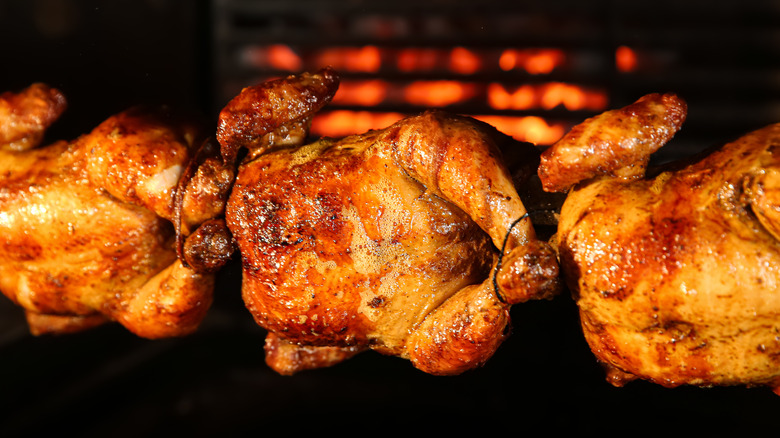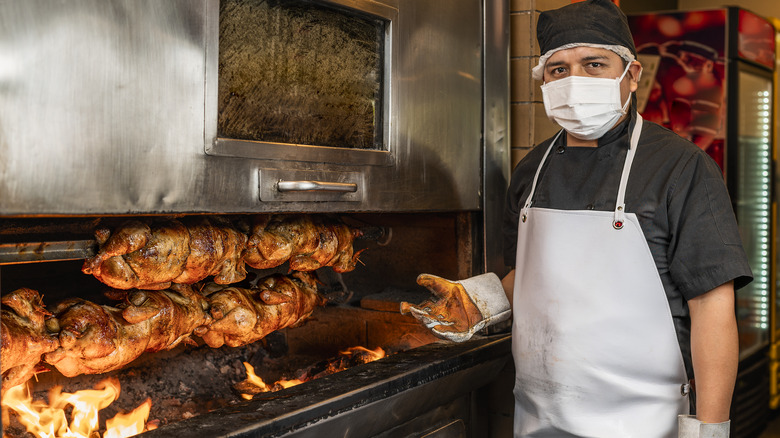Why It's Crucial To Balance Your Rotisserie Chicken Over The Grill
Rotisserie chicken is a fine-tuned art among cooks who stick to ovens and self-proclaimed grill masters alike. From charcoal to gas to your oven it helps crisp up the skin of a whole chicken and reduces fat content to boot. Seasoning wise the world is your oyster (err chicken?) as the poultry is endlessly flexible in how it takes on the flavors of dry rubs and more importantly liquid injected into it or used as a marinade for a while. It's best to experiment with moderation however as sodium levels can get too high especially on easily influenced dark meat like Costo's rotisserie chicken.
But one factor people don't pay enough mind to however is the placement of the chicken and the heat levels influencing it as it cooks for an extended period of time (or a tragically short time as it burns or cooks unevenly). Skewering the chicken through the center and keeping it a healthy distance from the heat source is key as a grill will char it into dust and an oven will simply burn the skin instead of that desired crispiness that maintains a level of moisture pleasing to the palate.
A balancing act
Once you have the preferred distance from the heat source and the skewer position locked down there are the ingredients and additive moisture to consider. Mojo in liquid form and white wine vinegar are your best friends to provide both tenderness and flavor. If you choose to forego mojo be sure to include seasoning or marinade, preferably one that can somewhat overpower the vinegar should you still choose to tenderize. Tenderizing is a luxury however and perfectly good rotisserie chicken can be made with dry rubs and other liquid additions (either injected or marinated in a container). A Costco rotisserie chicken copycat recipe could be a standard flavor to start off with before branching out into different varieties.
Above all else, the chickens positioning for evenly distributed heat and moisture for an extended period is the most important factor. Dry rubs like cajun seasoning help lock in moisture and are relatively heat resistant as it forms a coat over the skin. But the distance from heat is always key as even the thickest seasoning bark or generous marinade will fail to protect your chicken if carelessly placed or set at too high a temperature. When in doubt there's always the option of remoistening with the marinade part way through cooking.

